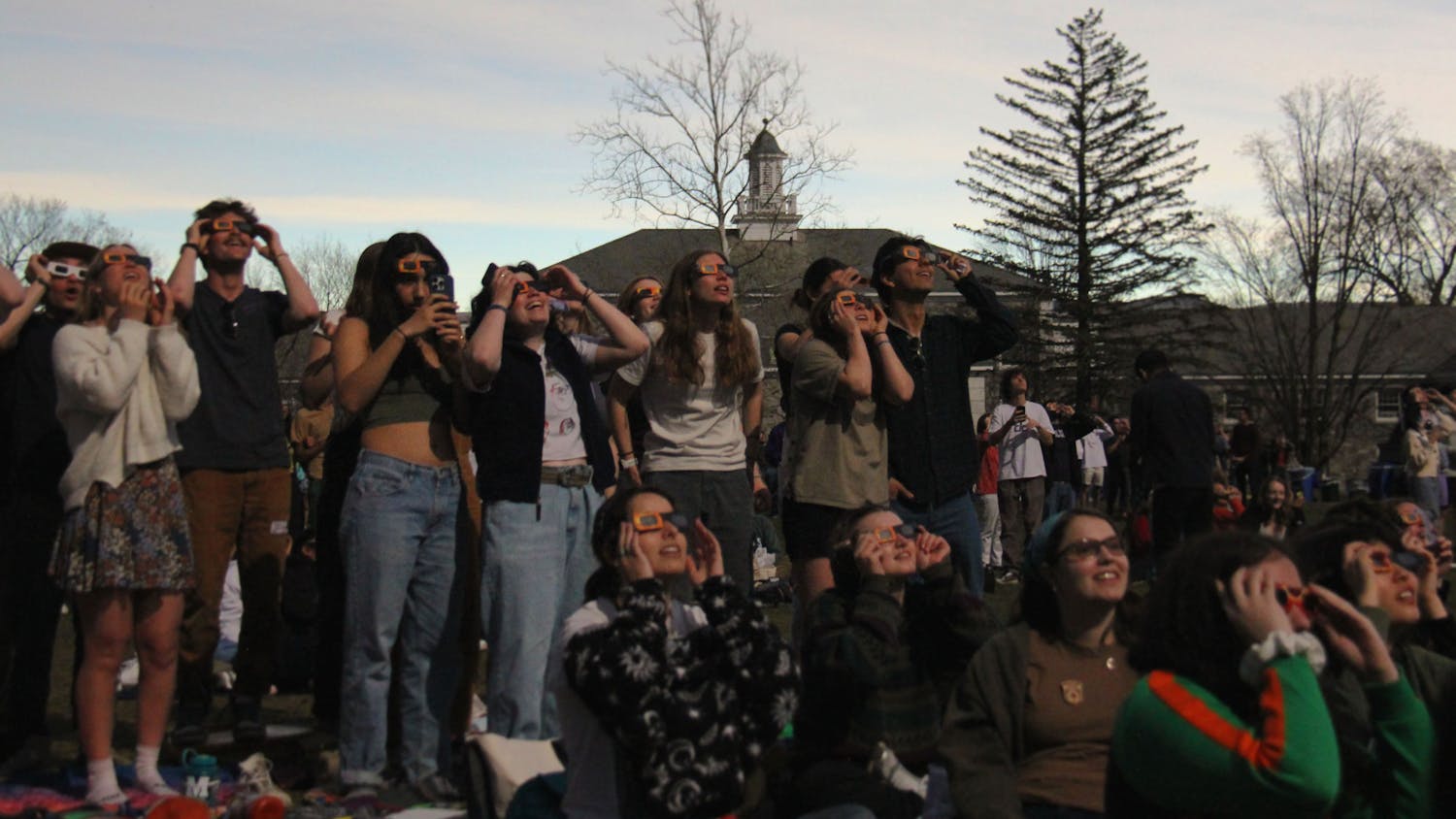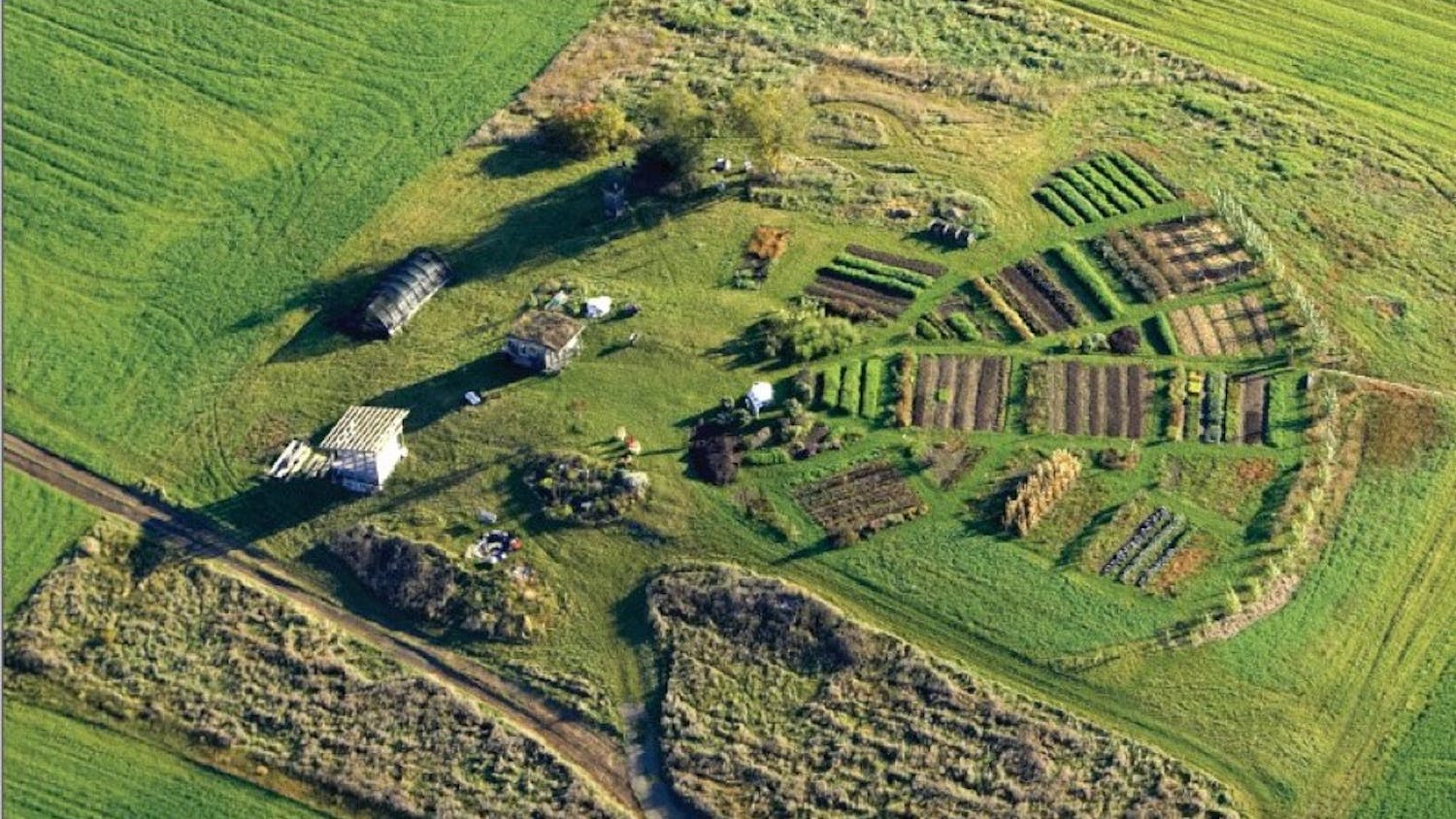Author: Devin Zarkowsky Staff Writer
Middlebury community members gathered at 7 p.m. last Wednesday, Nov. 7, at the Ilsley Public Library to partake in a community forum framing the Sept. 11 tragedies in a local historical perspective. Prefacing comments applauded Middlebury College workers, who worked in their spare time to clean and furnish temporary housing for a College professor's family, whose home suffered an electrical fire the previous night.
The Henry Sheldon Museum sponsored four Middlebury College alum's' short insights on events contained within this last century. James Ralph, associate professor of history, moderated. "History is necessary for a healthy society," Ralph stated. He continued, "It allows us to expand horizons and imaginations by observing our predecessors' dealings." Ralph thanked Deborah Clifford, who planned the event, before turning the forum over to the speakers.
Nathaniel Johnson '98, who completed Katman Prize-winning thesis reasearch on the catastrophic 1891 Middlebury fire, described Sept. 22, 1891 using the words of Town Clerk Barry Sheldon: "Warm. Sunny. Fire." A vibrant New England economic environment experienced reverberations akin to those affected worldwide after the recent World Trade Center attacks.
During the 19th century's latter half, Middlebury served as a focal point of commerce for slowly-industrializing northern New England. Factories and mills, relied upon throughout the Champlain Valley, hewed timber, quarried marble and worked metals. On Sept. 11, 1875 the majority of buildings west of Otter Creek suffered fire damage. The structures on Otter Creek's eastern bank were similar in design to those on the western bank that burned in 1875; unfortunately, the flaws that had caused the blaze remained uncorrected and resulted in another disaster.
Twenty businesses burned and four families lost homes in 1891. Fire fighting hindered by ineffective equipment in 1875 failed once more in 1891. "It was some minutes before water hit the fire; a pump delay was fatal," said Johnson. Flames were visible as far away as Rutland. The wooden trestle Otter Creek bridge collapsed, severing the only connection between East and West Middlebury and forcing several stranded residents to spend the night with friends.
Johnson highlighted the healing effect, albeit yellow journalism, associated with ensuing Middlebury Daily Register editions. One such article lauded "… the tireless Middlebury College boys, who came down to lend a hand; they're made of the toughest stuff." Another fanned arson suspicions, describing an "untrustworthy man, not from the area" boasting how he would show Middlebury "what fire is" with a "significant wink."
Necessity forged town unity, expediting recovery efforts. Joseph Battell is cited as an instrumental economic force, reinvigorating Middlebury both commercially and architecturally. Understandably, new, more stringent fire codes governed developments after 1891.
Waldo Heinrichs, author of "Threshold of War: Franklin Delano Roosevelt and the American Entry into World War II" and Middlebury College alumnus, equated Sept. 11 with another significant date, Dec. 7, 1941. Both days charged this nation with adversity, heartache, anger and fear. Heinrichs said, "I couldn't believe my eyes; it was so awful and horrible." Pearl Harbor rallied the nation to an armed response immediately, effectively demolishing entrenched Wilsonian isolationism, nascent since World War I's conclusion 23 years earlier.
The Japanese onslaught decimated an already underfunded and understaffed Pacific fleet, still reeling from a protracted economic contraction. Heinrichs said, "West-coasters panicked, fearing attacks on the mainland. People on the East Coast suffered as well: Nazi submarines repeatedly torpedoed ships no more than a few miles offshore." Citing security, morale and administrative protection, Heinrichs noted that research located no pictures in The New York Times until Dec. 16, 1941.
"FDR called this a 'new kind of war; a global war.' Heard that recently?" dead-panned Heinrichs.
Appraising Middlebury College's student response to World War II, Middlebury native Frances Hutner '40 offered commentary from then-Baccalaureate President Rudy. Hutner, a former economics professor at Smith College and author of "Women Shaping the Twentieth Century," said that the College newspaper editor Bob Packard maintained an adamant anti-war stance, infuriating Rudy. Wisconsin Senator Wylie expressed what Hutner termed "dislike" for herself and other anti-war minded individuals working on a Wisconsin commune during 1940s summer months.
"Pearl Harbor produced a 180-degree turn in young people's thinking," Hutner said. Referring to a particularly poignant article written by National Public Radio's Scott Simon and published in The Wall Street Journal, Hutner highlighted parallels between contemporary and historical perspective changes. Simon espoused pacificism until covering the Balkan Wars extending from the late 1980s into the 1990s. "I then realized that all the best people can be killed by the worst ones," he said. A similar feeling pervaded post-Pearl Harbor America according to Hutner. Describing Vermont's social climate, Hutner said the dominant Communist/Marxist fear governed pre-war sentiment; America-firsters and isolationists never really establish a foothold. Hunter also described disappointing racism, "Anti-semitism and anti-black" philosophies quickly supplanted by anti-Japanese and anti-German ones.
Reiterating the "terribly prepared" state of the armed forces, Hutner describes a picture of her husband outfitted in a World War I uniform with 25 year-old equipment. "All new tanks and munitions were constructed after 1941," she said.
As an international politics graduate student at Washington D.C.'s American University, Russell Leng, James Jermain professor of political economy, "didn't lose any sleep" during one October week in 1962 when Nikita Kruschev and John F. Kennedy played nuclear chicken around Cuba. Unlike the media frenzy surrounding last month's events, this particular crisis remained undisclosed until some six days after a U.S. U2 spy plane discovered ballistic missile emplacements hidden away in Cuban rain forests. "The public never really knew about the worst part of the crisis until it was over," said Leng.
Information relating to events between Oct. 14 and Oct. 28, 1962 eventually surfaced on Executive Committee, or EXCOM, tape recordings created by President Kennedy. Leng implied that modern parallels might provide future historians with invaluable vantages into ongoing operations against terrorism.
Leng entreated audience input. Most discussion revolved around experiential impressions, as several audience members spoke about living through more recent history. One question prompted the panelists to agree on a sensitization effect inherent in modern mass media; unlike the journalistic dearth associated with Pearl Harbor's aftermath, multiple outlets provide varied international coverage to nearly every American instantaneously.
Forum Turns to History to Help Understand Moment
Comments



